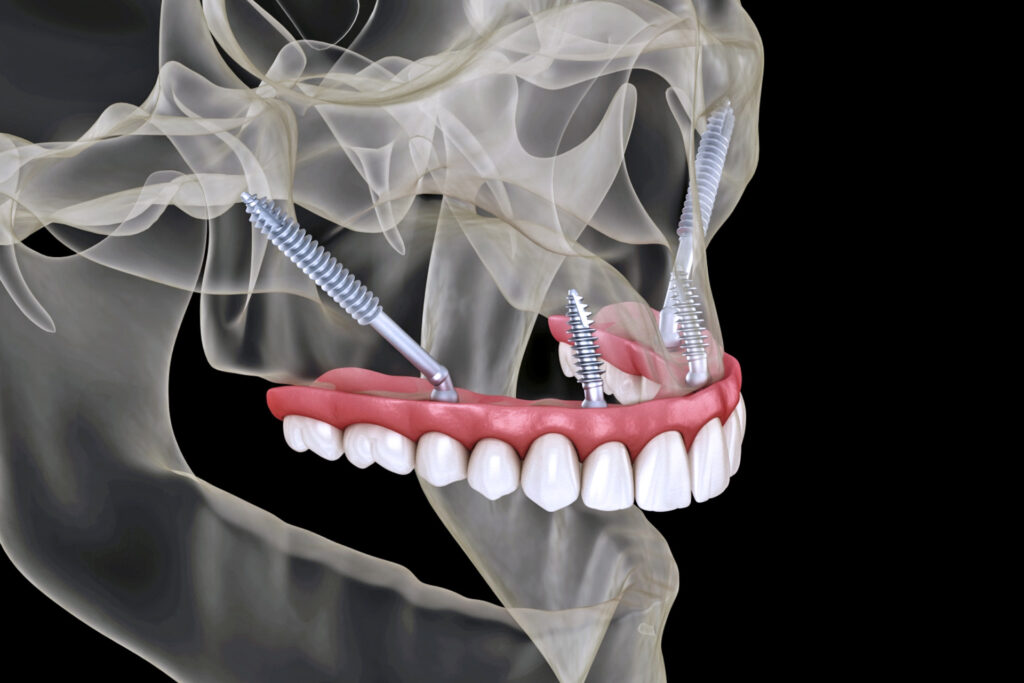
Zygomatic implants have a longer structure than traditional dental implants and are placed in the zygomatic bone (cheekbone) instead of the upper jawbone. Zygomatic implants are suitable for patients who do not have enough bone density in the upper jaw.
The length of conventional dental implants varies between 5 and 15 mm. Zygomatic implants, on the other hand, have a length between 30 and 55 mm. In this way, it can extend beyond the jawbone to the zygomatic bone. Zygomatic implants provide a strong and durable foundation for dental crowns, dental bridges and dentures.
Zygomatic implants have a higher success rate than traditional implants in patients with bone loss. In addition, it is not necessary to perform additional procedures such as bone grafting and sinus lifting and wait for healing.
The fixation of dental implants in the cheekbone allows for the immediate placement of dental bridges and crowns. There is no need to be toothless for any period of time or to wear dentures.
The procedure for zygomatic dental implants is identical to the all-on-4 procedure. First, a consultation and a thorough oral examination is performed. Immediately afterwards, a treatment plan is drawn up. At the next appointment, depending on the patient’s needs, 2 or 4 zygomatic implants are placed to support dental bridges.
During zygomatic implant treatment, the patient is under general anesthesia. An anesthesiologist monitors the patient throughout the treatment. The patient does not feel any pain as they are asleep during the entire procedure. In some cases, a combination of local anesthesia and sedation may be used instead of general anesthesia.
The recovery process after the zygomatic dental implant procedure is very similar to the recovery after a traditional dental implant. The healing process can vary from patient to patient, but it is usually possible to return to normal life after 3-5 days.
Zygomatic implants are a safe and effective treatment option for patients who have experienced significant loss of jawbone and wish to avoid additional procedures such as bone grafting and sinus lifting. Zygomatic implants are expected to last for at least 12 years. Zygomatic implants can last a lifetime if cleaned and maintained properly.
Zygomatic implants are a relatively new development in dental implant technology. Therefore, there are few clinics with the skills and qualifications to place zygomatic implants. For this reason, you should be extremely careful when choosing a clinic and carefully examine the clinic’s website and references.





